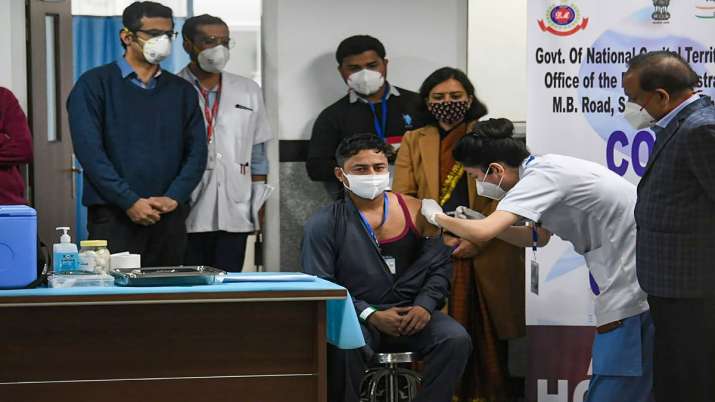The center has stated that it would encourage “a few beneficiaries” in the 18-44 age range to register on-site, or walk-in, at state-run Covid vaccine centers in order to “minimize wastage.”
This was to use “few doses… left unutilized in case online appointee beneficiaries do not show up on the day of vaccination,” according to a notice provided Monday afternoon.
The center has also permitted on-site registration for those who may not have “access to the internet, smartphones, or cell phones” and would otherwise have restricted access to the operation.
The central government notification, however, stated that approving on-site registrations would also be subject to individual state/UT governments’ decisions, which would be dependent on “local background.”
According to the center, if state/UT governments plan to approve on-site enrollment, it can only be done at government-owned vaccination centers, not those run by private hospitals.
The announcement comes after a barrage of outrage directed at the center’s management of the vaccine campaign, which has caused states to close inoculation centers due to a shortage of doses.
On Saturday, Delhi became the latest state to cancel vaccinations for people aged 18 to 44 for this cause. Bengal, Maharashtra, Punjab, Rajasthan, and Chhattisgarh are among the others.
Due to a shortage of doses, states have been forced to attempt to procure vaccines directly from overseas producers, a process that has hit a snag in the last 48 hours since US pharma giants Pfizer and Moderna stated that they would not negotiate with individual states.
Hours before the notification from the center, Delhi Chief Minister Arvind Kejriwal said: “They’ve stated that they’ll negotiate with the central government. We request that the center procure vaccines and supply them to the states “.
Amarinder Singh, the Chief Minister of Punjab, had said the day before that Pfizer had turned down his state as well.
So far, India has approved two vaccines: Bharat Biotech’s Covaxin and Covishield, manufactured by the Serum Institute and produced by AstraZeneca-Oxford University.
A seventh, Russia’s Sputnik V, has been authorized for use in emergencies but has yet to be released.









